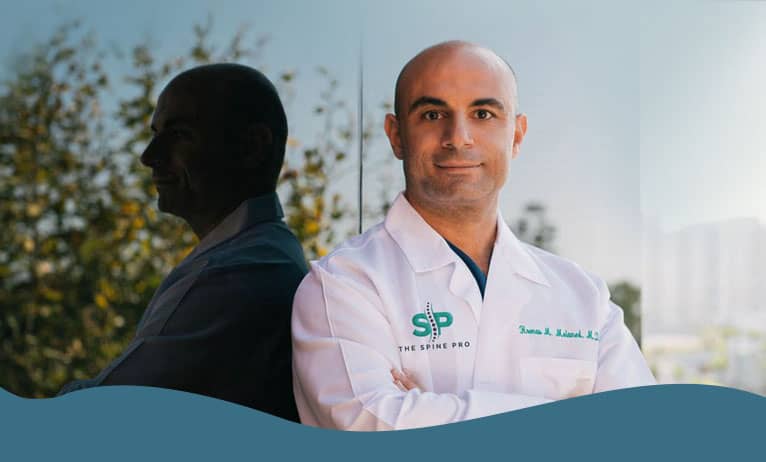Thoracic Spine Conditions: Myelopathy, Cord Compression and Disc Herniation
The thoracic spine, or mid-back, is a critical region of our body that plays a pivotal role in our overall spinal health. When issues arise in this area, such as thoracic myelopathy, thoracic cord compression, and thoracic disc herniation, the consequences can be severe and life-altering. These conditions result from the compression of the spinal cord within the thoracic region, leading to a myriad of symptoms, especially neurological ones.
The Critical Role of the Spinal Cord
The spinal cord acts as the primary conduit for transmitting signals between our brain and the rest of our body. Any compression or damage to this vital pathway can lead to a range of symptoms. Alarmingly, many patients with these conditions are misdiagnosed, with some even undergoing surgery in the wrong part of the body. This highlights the importance of seeking expert care and diagnosis.
Symptoms to Watch Out For
Patients with these conditions might experience:
- Pain in the mid-back
- Leg weakness or numbness
- Challenges with walking, balance, and coordination
- Sensations of heaviness in the legs or buttocks
- Stiffness in the legs
- Severe cases might lead to bowel or bladder dysfunction
- Burning sensations in the legs or feet
- Abdominal pain, even when gastrointestinal tests show no issues
- Pain resembling kidney stones or radiating into the groin
What Causes These Conditions?
The root causes of these conditions can vary, but they primarily revolve around spinal health and trauma. Some of the main causes include:
- Degenerative Disc Disease
- Spinal Stenosis
- Herniated Disc
- Spinal Tumors or Infections
- Trauma leading to fractures or dislocations
- Kyphosis and other spinal deformities
Risk Factors
Certain factors can increase one’s risk of developing these conditions:
- Aging
- Previous spinal injuries
- Genetic predisposition
- Elevated inflammation levels
- Activities or jobs that excessively strain the mid-back
The Diagnostic Process
A thorough diagnosis is crucial. This typically involves:
- A detailed clinical examination
- Imaging tests like X-rays, MRI, and CT scans
Treatment Options
Treatment depends on the severity and cause. Initial treatments might include physical therapy, acupuncture, chiropractic care, and medications. If these don’t work, epidural injections or even surgery might be considered.
Surgical Treatments
Surgery aims to relieve pressure on the spinal cord and possibly stabilize the spine. Most patients only require decompression without the need for fusion or additional hardware. Dr. Melamed specializes in both posterior and anterior decompression methods, with the latter being his unique, minimally invasive approach.
Why Dr. Melamed Stands Out
Many surgeons are unfamiliar with the anterior approach, which can lead to complications. Dr. Melamed offers a unique method, combining advanced technology with his expertise, ensuring a quicker recovery for patients.
Understanding the Risks
All surgeries come with risks. It’s vital to understand these risks and discuss them with your spine surgeon. Dr. Melamed ensures all patients are well-informed and active participants in the decision-making process.
The Value of a Second Opinion
Given the complexities of the thoracic spine, a second opinion is crucial. Dr. Hooman Melamed specializes in providing these second opinions, ensuring accurate diagnosis and effective treatment recommendations.
Thoracic spine conditions like myelopathy, cord compression, and disc herniation are serious conditions that require expert care. Dr. Hooman Melamed at The Spine Pro offers unparalleled expertise in diagnosing, treating, and offering second opinions for these conditions. Your spinal health is of utmost importance, and with Dr. Melamed, you’re in the best hands.
For more information or to schedule a consultation, reach out to The Spine Pro at (424) 21-SPINE.






